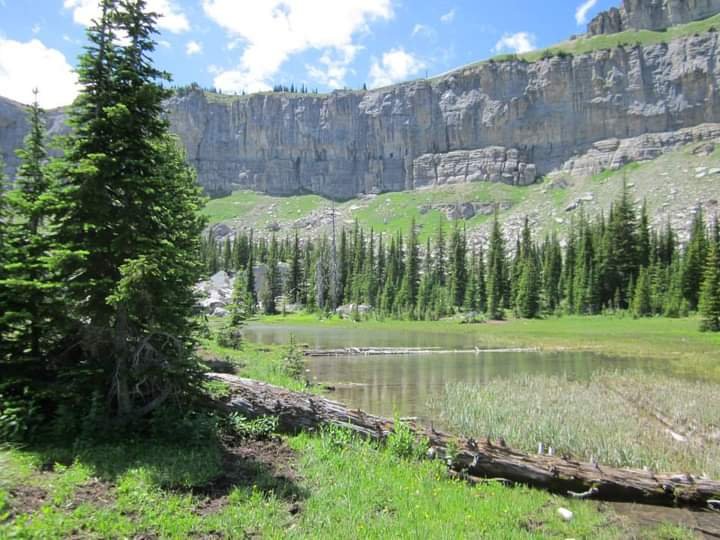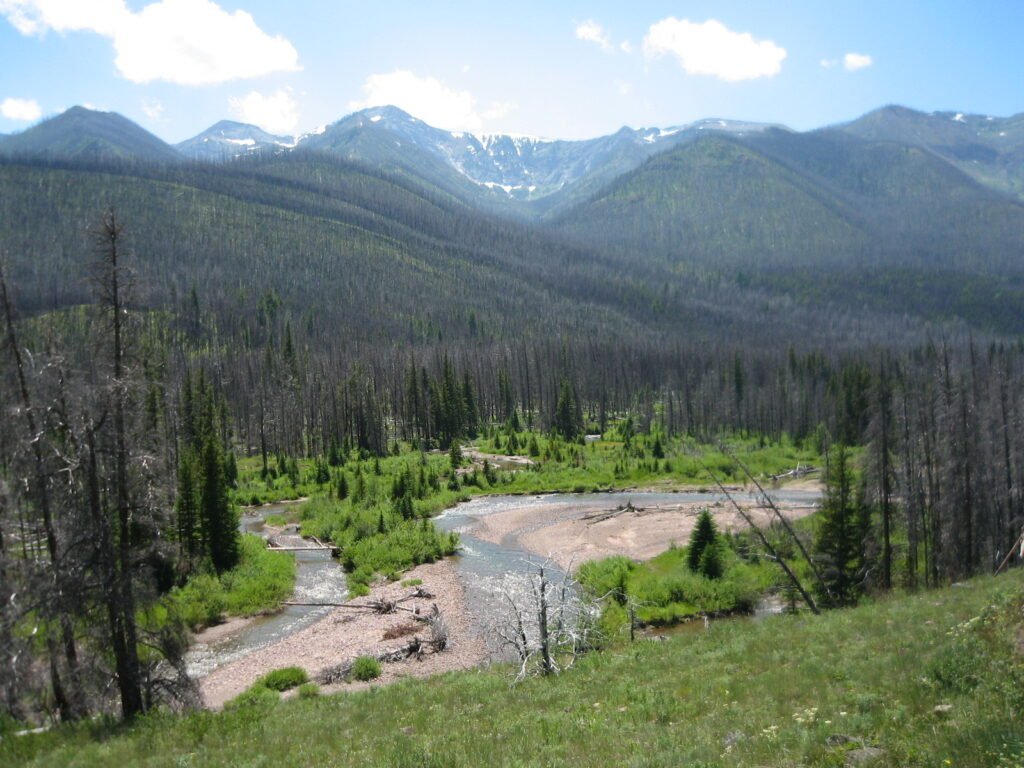Discovering Montana’s Wilderness: Embracing its Intrinsic Value for Future Generations
June 21, 2023 – In: Montana wilderness, wilderness definition, wilderness characteristics, wilderness skills, wilderness benefits
Montana’s wilderness areas are priceless treasures that provide refuge for nature’s wonders and offer unparalleled experiences for those who venture within. By understanding the definition, history, and unique characteristics of wilderness in Montana, we can appreciate the importance of preserving these areas for future generations.

What’s the big deal about wilderness?
Do you like to relax in your own space – your yard, your garden, your front porch? It’s a comfort to know there is a small envelope of existence that can buffer you from all the other noisy and brash intrusions that make up humans’ place in the world. It becomes a solace that’s craved.
Now what if I told you there is a place, a really, amazing place, that’s yours to share and can give you an experience that all humans need, but most have trouble finding. It can be difficult to reach, but that is one of its best qualities. The downside is that this huge abundant place is like a savings account, if we as a collective, use up all it has to offer all at once, it’s not just the loss of this place that we suffer, we suffer the extreme effects from the loss of life sustaining natural processes it provides. But if we nurture its existence, it will nurture ours.
The Definition and Historical Significance of Wilderness
Montana is blessed with vast expanses of wilderness, which are protected and cherished under the Wilderness Act of 1964. Wilderness is defined as an area where the earth and its community of life remain largely unaltered by human activity, providing a sanctuary for natural processes to thrive. It is a testament to our commitment to preserving ecosystems, biodiversity, and the intrinsic value of untouched landscapes.
The Wilderness Act was a landmark piece of legislation that was signed into law by President Lyndon B. Johnson on September 3, 1964. The act established the National Wilderness Preservation System, which is a network of federally protected wilderness areas in the United States. The Wilderness Act defined wilderness as “an area where the earth and its community of life are untrammeled by man, where man himself is a visitor who does not remain.”
The roots of wilderness preservation in Montana can be traced back to early conservationists like Robert Marshall, who recognized the need to safeguard these areas. Today, Montana boasts several designated wilderness areas, such as the Bob Marshall Wilderness Complex, the Selway-Bitterroot Wilderness, and the Absaroka-Beartooth Wilderness. These areas collectively encompass millions of acres, ensuring that future generations can experience the awe-inspiring grandeur of Montana’s wilderness.

Get to know “the Bob”
The Bob Marshall Wilderness Complex, named after Robert Marshall, is a vast wilderness area located in western Montana, established by the Wilderness Act of 1964.
The complex includes three wilderness areas: the Bob Marshall Wilderness, the Scapegoat Wilderness, and the Great Bear Wilderness. Together, these areas encompass more than 1.5 million acres of pristine wilderness, including rugged mountains, deep canyons, and wild rivers.
The Bob Marshall Wilderness Complex is home to a diverse array of wildlife, including grizzly bears, wolves, mountain goats, and elk. It also provides important habitat for threatened and endangered species such as the bull trout and the Canadian lynx. The wilderness area is a popular destination for hikers, backpackers, and hunters, and it is managed by the U.S. Forest Service.
Overall, the Bob Marshall Wilderness Complex is an important example of the success of the Wilderness Act in preserving wild places for future generations. It is a testament to the vision and dedication of conservationists like Bob Marshall, who recognized the importance of protecting wild places and worked tirelessly to make that vision a reality.
What is the value for you?
The existence of wilderness allows for many benefits not gained anywhere else. Not only are there healthy physical benefits from being in a wilderness environment, the benefit to human mental health is also notable. It can also be argued that the overall health of the planet we call home is improved because of wilderness.
The Physical Benefits
The modern world is increasingly characterized by an indoor and sedentary lifestyle, which has negative implications for both physical and mental health. However, spending time in nature, such as in wilderness forests, has been found to have numerous benefits for health and well-being. This practice is known as forest bathing, or Shinrin-yoku, and has been studied extensively in recent years.
Forest bathing involves immersing oneself in nature, typically a forest, with the aim of improving physical, mental, and emotional health. This practice originated in Japan in the 1980s and has since gained popularity worldwide. Numerous studies have demonstrated the positive effects of forest bathing on the body and mind.
One of the key benefits of forest bathing is its ability to reduce stress. Spending time in nature has been found to decrease the levels of cortisol, a stress hormone, in the body. In a study conducted by Li and colleagues (2010), participants who engaged in forest bathing had significantly lower cortisol levels compared to those who engaged in urban activities. This reduction in stress hormones can lead to a range of other benefits, including improved mood and better sleep quality.
In addition to stress reduction, forest bathing has also been shown to improve cardiovascular health. Research has found that spending time in forests can lower blood pressure, reduce heart rate variability, and improve heart rate recovery time. These effects are thought to be due to the relaxing and calming effects of nature, which can help to lower blood pressure and promote relaxation.
Forest bathing has also been linked to improved immune function. Phytoncides, the airborne chemicals released by trees, have been found to have anti-inflammatory effects, which can help to boost the immune system. In a study conducted by Li and colleagues (2009), participants who engaged in forest bathing had increased levels of natural killer cells, a type of white blood cell that plays a key role in the immune response.
The Mental Benefits
Another benefit of forests is its potential to improve mental health. Studies have found that spending time in nature can reduce symptoms of depression and anxiety, as well as improve cognitive function. This may be due to the calming effects of nature, which can help to reduce negative thoughts and feelings and promote relaxation.
The scent of pine trees has been shown to have a calming effect on the body and mind, reducing stress and anxiety. This effect is thought to be due to the presence of compounds in pine essential oil, such as alpha-pinene and beta-pinene, which have been shown to have anti-anxiety and antidepressant properties.
The scent of pine trees has also been shown to have mood-boosting effects. In one study, participants who were exposed to the scent of pine essential oil reported feeling more positive and relaxed than those who were not exposed to the scent.
Numerous studies have demonstrated the positive effects of forest bathing on the body and mind, including stress reduction, improved cardiovascular health, improved immune function, and improved mental health. With its many benefits, forest bathing is a simple yet effective way to improve overall health and well-being. The wilderness is an idea place to enjoy these healthy benefits.

Building Resilience
One of the most rewarding ways to enjoy your time in the wilderness is learning the skills needed for thriving in this unique, magical place. Practicing wilderness skills not only enables individuals to navigate and survive in remote areas but also fosters personal growth, resilience, and a deep appreciation for the natural world.
Several key benefits of engaging in wilderness skills include self-reliance and problem solving; resilience and adaptability; connection with nature; and physical and mental well-being.
Wilderness skills empower individuals to become self-reliant, capable of meeting their basic needs in a challenging environment. By learning essential skills such as building shelters, finding food and water, and navigating without modern technology, individuals develop problem-solving abilities that can be applied to various aspects of life.
Learning resilience and adaptability are additional benefits. The wilderness presents unexpected challenges, demanding adaptability and resilience. Facing these obstacles cultivates mental fortitude, emotional strength, and the ability to remain calm and composed amidst uncertainty. These qualities are invaluable in navigating life’s adversities and bouncing back from setbacks.
Engaging in wilderness skills nurtures a profound connection with the natural world. As individuals immerse themselves in the rhythms of the wilderness, they develop a heightened sense of awareness, mindfulness, and appreciation for the intricate web of life. This connection fosters environmental stewardship and a desire to protect and preserve wilderness areas.
Spending time in the wilderness and practicing wilderness skills offers numerous health benefits. It provides opportunities for physical exercise, enhancing fitness and cardiovascular health. Moreover, the tranquility and peace found in the wilderness promote mental well-being, reducing stress levels and boosting over all happiness.
We hope you learn and practice wilderness skills to develop self-reliance, resilience, and a deep connection with the natural world. These skills will empower you to navigate challenges, foster personal growth, and contribute to the conservation and sustainable use of wilderness areas.
Join us preserving our natural wilderness heritage!
Montana’s wilderness areas are priceless treasures that provide refuge for nature’s wonders and offer unparalleled experiences for those who venture within. By understanding the definition, history, and unique characteristics of wilderness in Montana, we can appreciate the importance of preserving these areas for future generations.
So, let us embark on a journey to explore Montana’s wilderness, immerse ourselves in its untamed beauty, and embrace the transformative power of the natural world. By cherishing and protecting these irreplaceable havens, we ensure that the big deal about wilderness in Montana remains a cherished legacy for generations to come.

